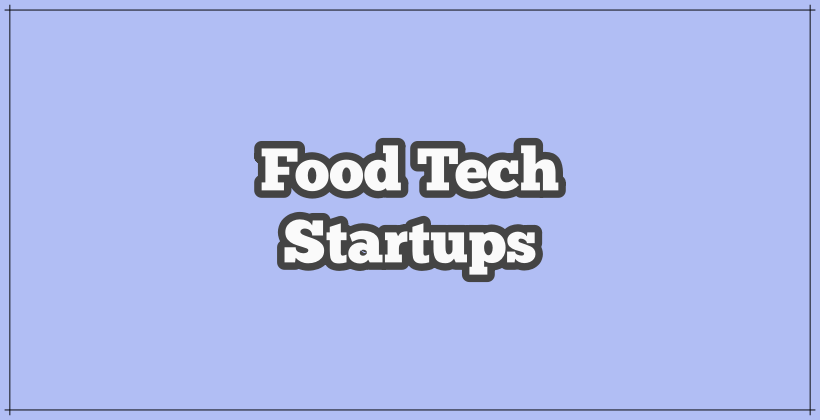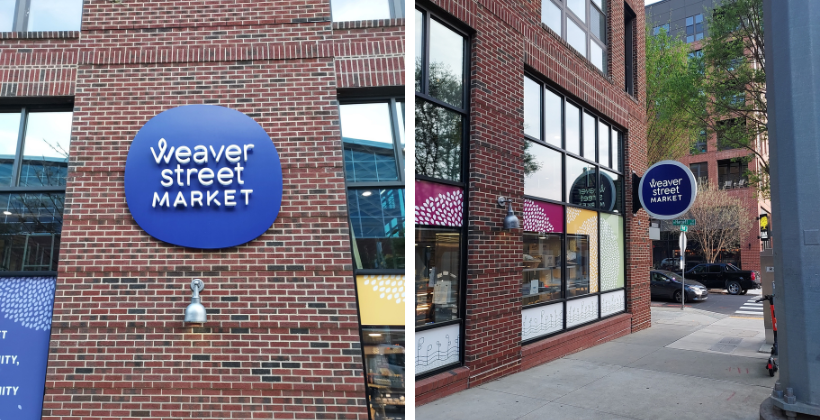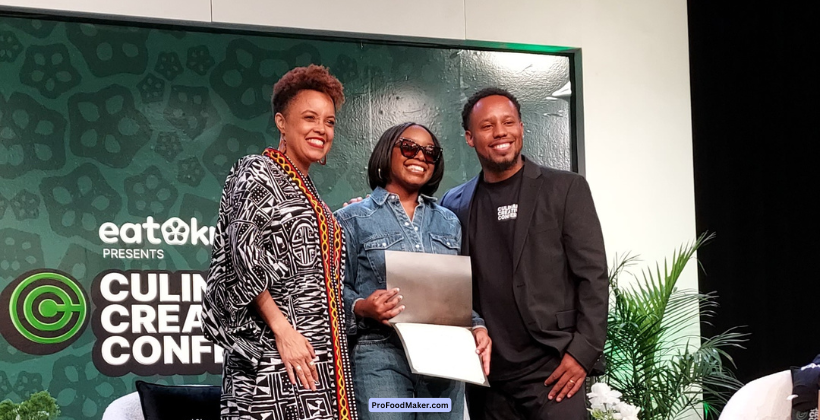
EatOkra’s Culinary Creatives Conference is More than a Food Conference
Last updated on October 31st, 2024 at 07:25 pm
If you missed EatOkra’s inaugural Culinary Creatives Conference, I’m sad for you.
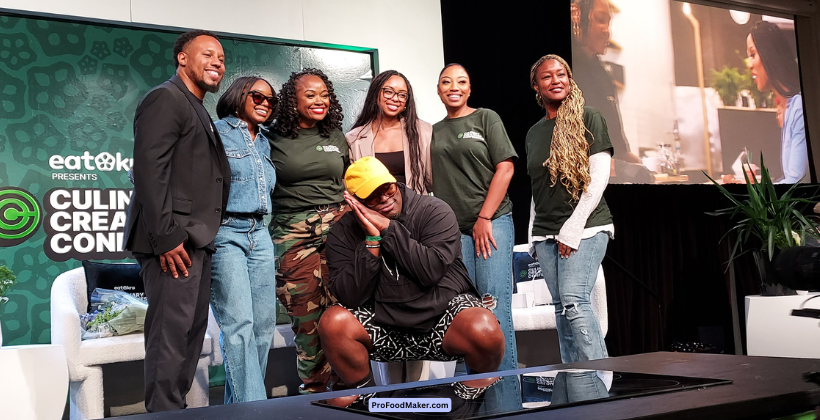
Culinary Creatives Conference (3C) is a 1-day event for Black food entrepreneurs, investors and content creators to connect, network and celebrate one another.
3C is presented by EatOkra, a company whose mission is to bridge the gap between consumers, supporters, investors and Black owned restaurants and food businesses.
Founded by Anthony and Janique Edwards, EatOkra started as an app for finding Black owned restaurants.
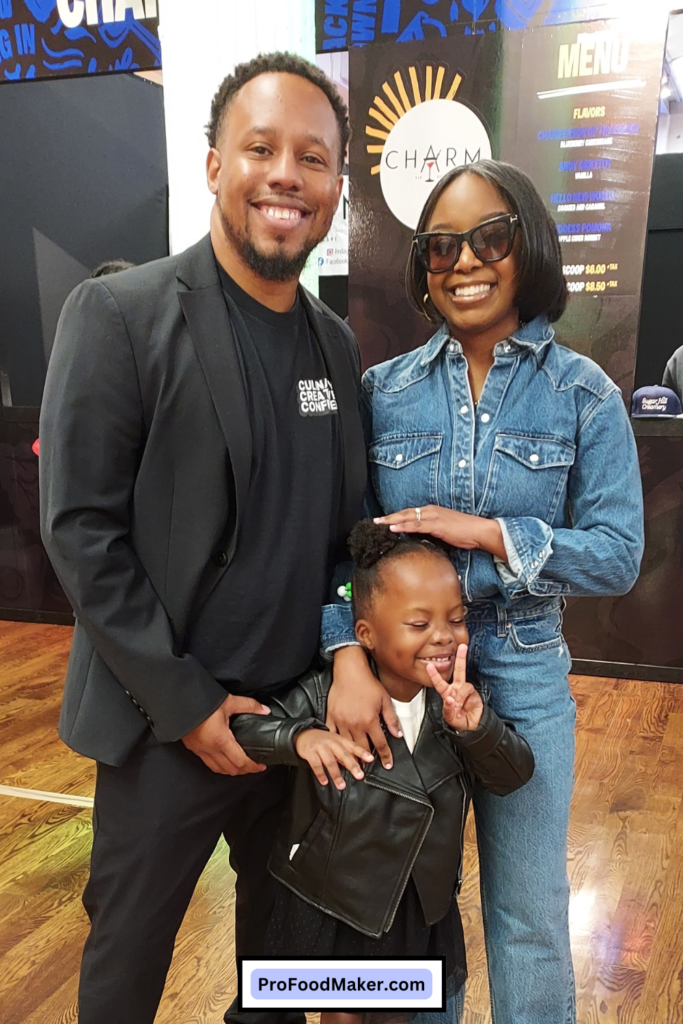
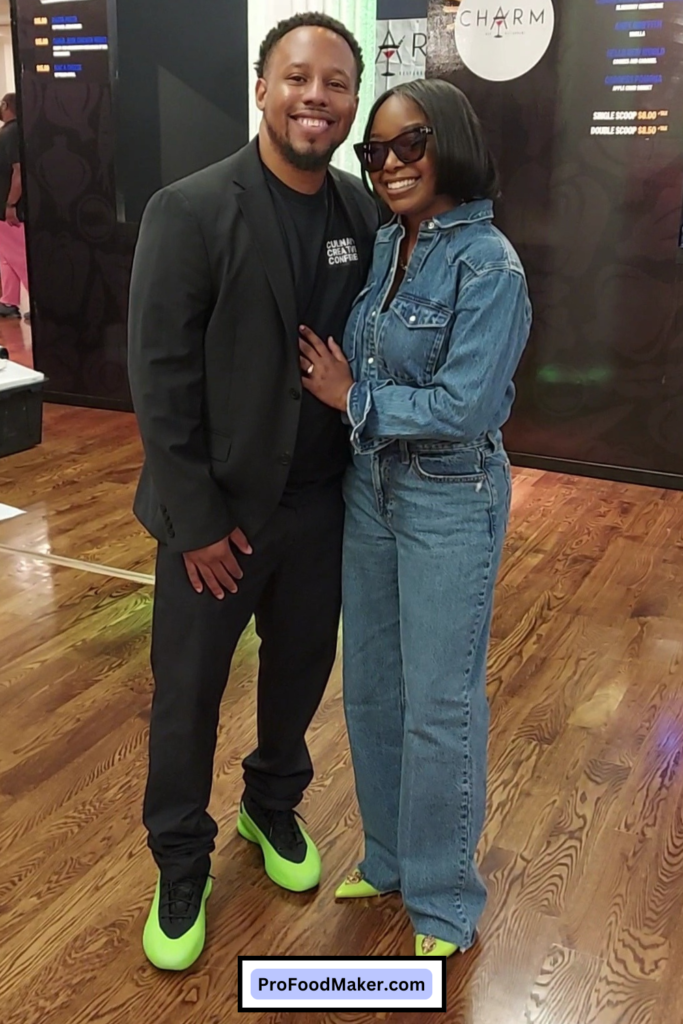
Previously featured in 5 Food Tech Companies that Should be on Your Radar Right Now, the company has expanded to provide resources for Black food entrepreneurs to scale their businesses, including restaurant consulting services.
Taking place at Metropolitan Pavilion in New York City, 3C featured educational panels, Pepsi Dig In activations and 75+ vendors.
EatOkra’s 3C was hosted by James Beard Award winner, KJ Kearney, the Founder of Black Food Fridays.
This is a recap of what I learned and ate at this Black food conference in October 2024.
Note: This post contains affiliate links. If you make a purchase, I’ll earn a commission at no extra charge to you. Read more on the Disclaimer page and thank you for your support.
Top 3 takeaways from EatOkra’s Culinary Creatives Conference
1. Use OPM to finance your food business
The EatOkra team gets an A+ for opening the conference with a financial management panel.
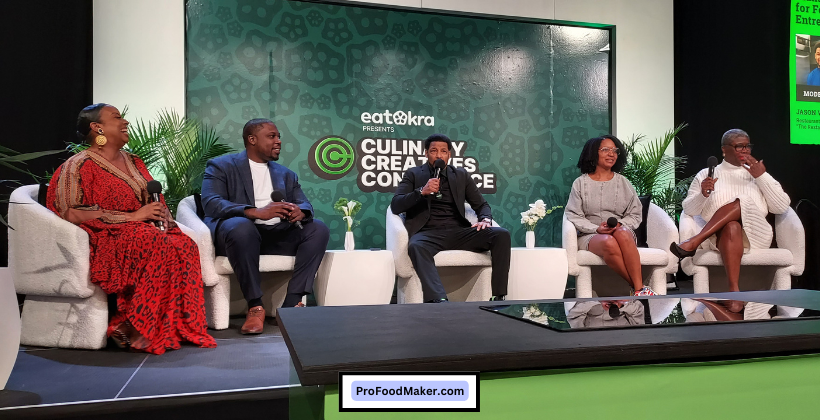
Melba Wilson, owner of Melba’s Harlem restaurant, tells the audience that despite saving more than $300K, her biggest mistake in business has been not utilizing other people’s money (OPM).
Fund Black Founders CEO & Founder, Renee King, describes how founders should build a ‘capital stack,’ which means you can use a combination of crowdfunding, a bank loan, venture capital, etc to fund your business.
Note: ‘Capital stack’ might be a reference to ‘tech stack,’ which is the list of tools and programming languages used by a software company.
Seller financing is the method Kenneth Ware, owner of Backyard Barbeque used to purchase the BBQ restaurant from his dad.
Nichol King, Executive Director of Community Banking at JPMorgan Chase, outlines what’s needed in order to be considered for a bank loan, including:
- Business plan
- Tax returns
- Separation of personal and business finances (for example, have separate bank accounts for your business)
- Financial projections
- A summary of the experience and background of the business owner(s)
Jason Wallace, EatOkra’s Director of Business, stresses the importance of knowing the numbers in order to make the right business decisions. You are the CEO of your business, not your accountant.
Although, Nichol says to get an accountant who can help you with 5 and 10 year business planning. When you attempt to get a bank loan, lenders don’t want to see a lot of losses on your tax returns because it’s all about your ability to repay the loan plus interest.
During another panel, Klancy Miller, author of For the Culture: Phenomenal Black Women and Femmes in Food: Interviews, Inspiration, and Recipes, chats with Gabrielle Davenport (BEM | books & more) and Jenneh Kaikai (Pelah Patisserie + Kitchen) about wanting to expand her magazine in the future with the help of angel investors.
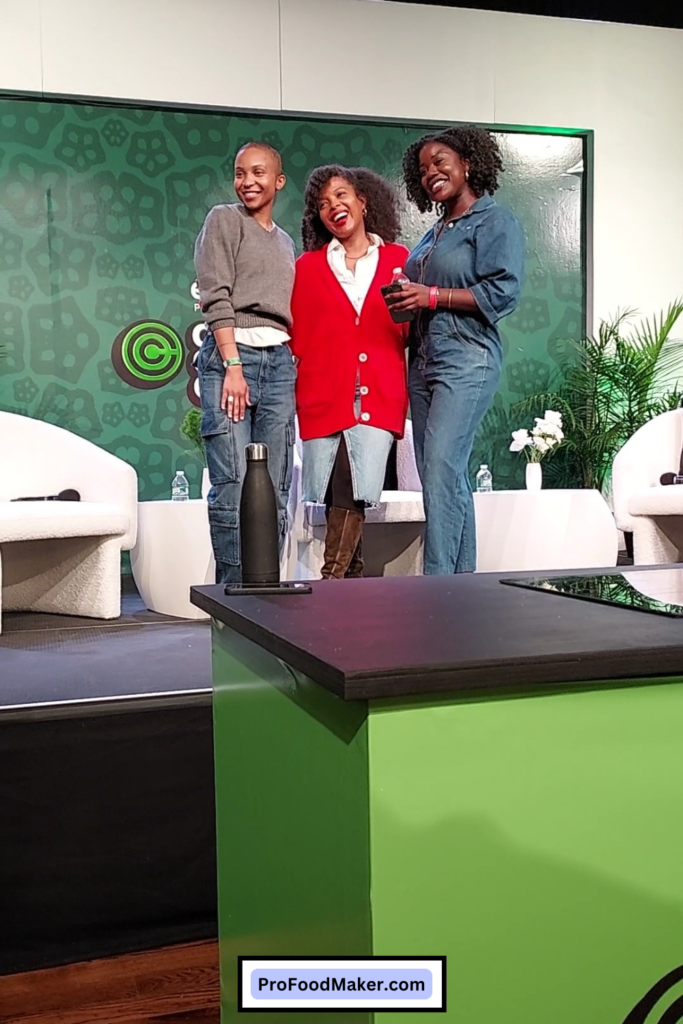
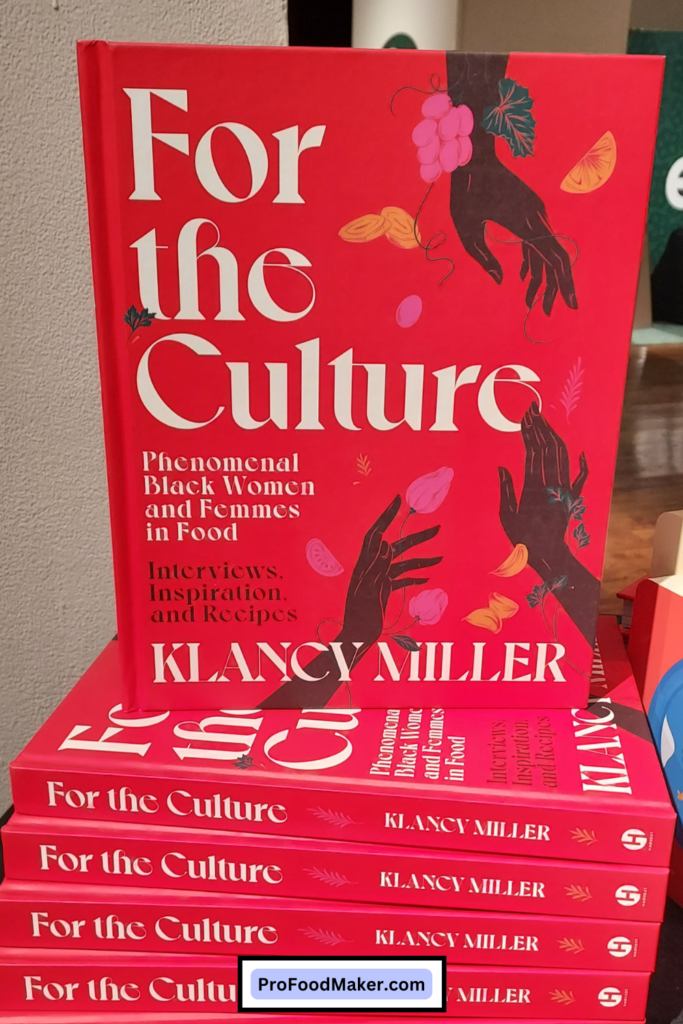
For the Culture (book) is the 2024 IACP Cookbook Award winner and stems from the magazine of the same name.
Klancy created the magazine after a successful Indiegogo campaign, where she raised more than $38K.
I was one of the contributors of this campaign. When I received my copy of the magazine, I posted this reel on Instagram.
For current or aspiring restauranteurs or food business owners, these are resources on how to fund your business:
- How to Get Funding for Your Business with No Money?
- 10 Things to Know about Venture Capital for Restaurants & Food Businesses
- How to find investors for your business w/Kubé Nice Cream | Ep. 29
2. Where and how to find mentors
One of the biggest challenges that food entrepreneurs are facing is a lack of mentorship.
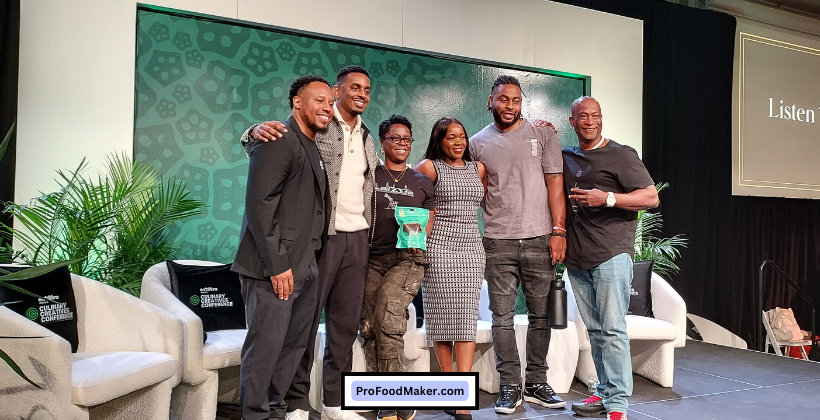
How can I find employees to hire? How do I start working with a manufacturer? What’s the best way to negotiate the lease for my restaurant with the landlord?
These are all questions that a mentor could not only answer but help you navigate the process.
But where to find mentors seems to be a great mystery.
Nicole Applewhite, owner of the little FAT girl brownie company, has learned to use what’s available, including YouTube. Nicole learned how to package her brownies, use shrink wrap and more from watching YouTube videos.
Jackie Summers, creator of Sorel Liqueur, is an activist who speaks and writes extensively about race. Jackie comments, “We work best in community. Don’t try to do this alone. This system is designed for us not to do well.”
“Look to people in this room. Mentors don’t have to be way ahead,” says Margaret Nyamumbo, Founder of Kahawa 1893. Margaret is the first Black woman to own a nationally distributed coffee company in the U.S.
Jairus Morris, Founder of SUPLMNT, simply messages people on LinkedIn. This is how he was able to get an introduction to a manufacturer for his water bottles.
Moderator Taylor Bauldwin, Founder of Rooted Ventures, adds to Margaret’s point and says to network across with your peers.
Finding mentors (and sponsors) to grow your career in food & beverage is something I’ve thought a lot about.
It helps to not have a rigid view of what and who a mentor is and how they can help.
For example, asking for help with a specific problem might be better received than asking someone directly to ‘be my mentor.’
It takes the pressure off and doesn’t seem like such a heavy commitment.
With Lorraine Copes, Founder of Be Inclusive Hospitality, I chat about mentorship on the Pro Food Maker Podcast.
3. Build a community of evangelists
Don’t just build a company. Build a community.
And your community needs evangelists, people who will go to bat for you.
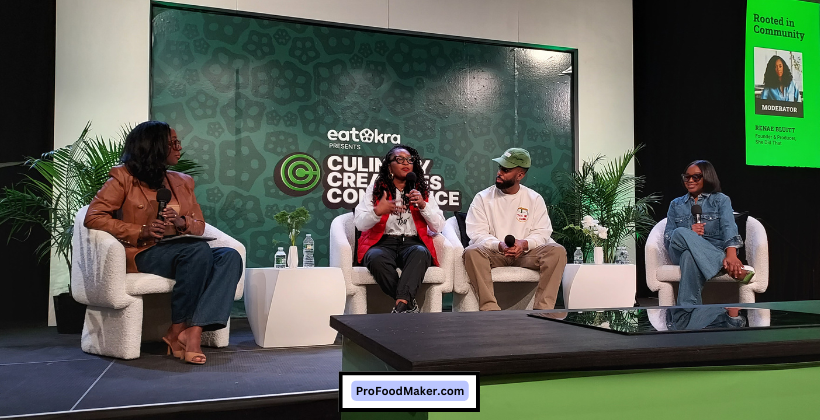
Jamila Wright, co-owner of Brooklyn Tea, tells several stories of how her community showed up for her. One example is during COVID, customers would visit and even if they didn’t buy something, they would at least put something in the tip jar.
A more recent example is how her community advocated for the company which led to getting better distribution terms with Target.
Janique, Cofounder of EatOkra, highlights market analysis as something that’s needed to understand what’s missing that you can provide to customers. And having a strong values system for your company is something that your community can identify with and get behind.
What I bought from Black owned businesses at Culinary Creatives Conference
One of my favorite parts of the conference was KJ reminding us that the whole point of us being here is to be intentional with our money and purchase from Black owned businesses.
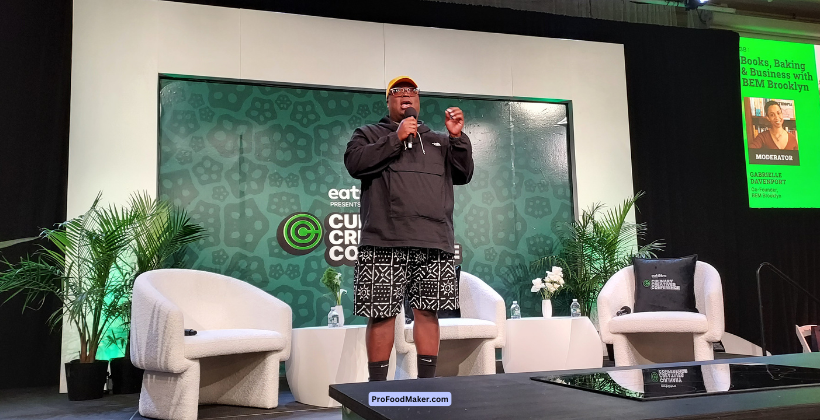
There were more than 75 vendors ranging from coffee, tea, sausage and ice cream to water bottles, books and DNA testing kits.
My mission is to channel more capital to Black entrepreneurs, and it starts with me.
So, here’s what I bought at Culinary Creatives Conference.
What I ate
Am I the only one who needs to eat plantain just about every day?
These are the jerk chicken plantain nachos from BunNan, with pikliz, red cabbage and caramelized onions.
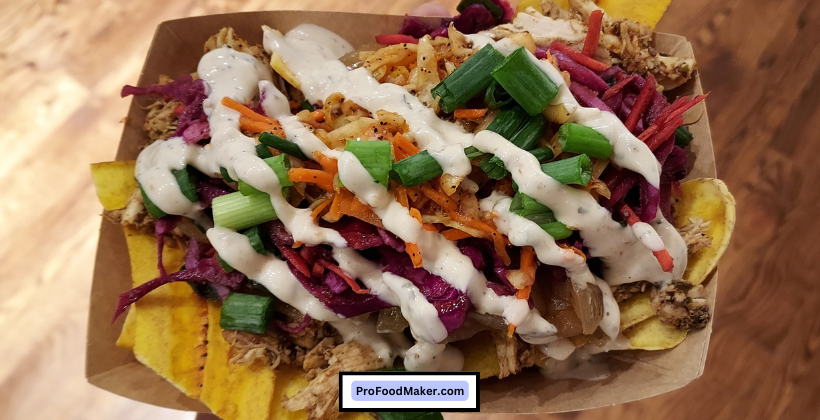
The Nourish Spot lemonade
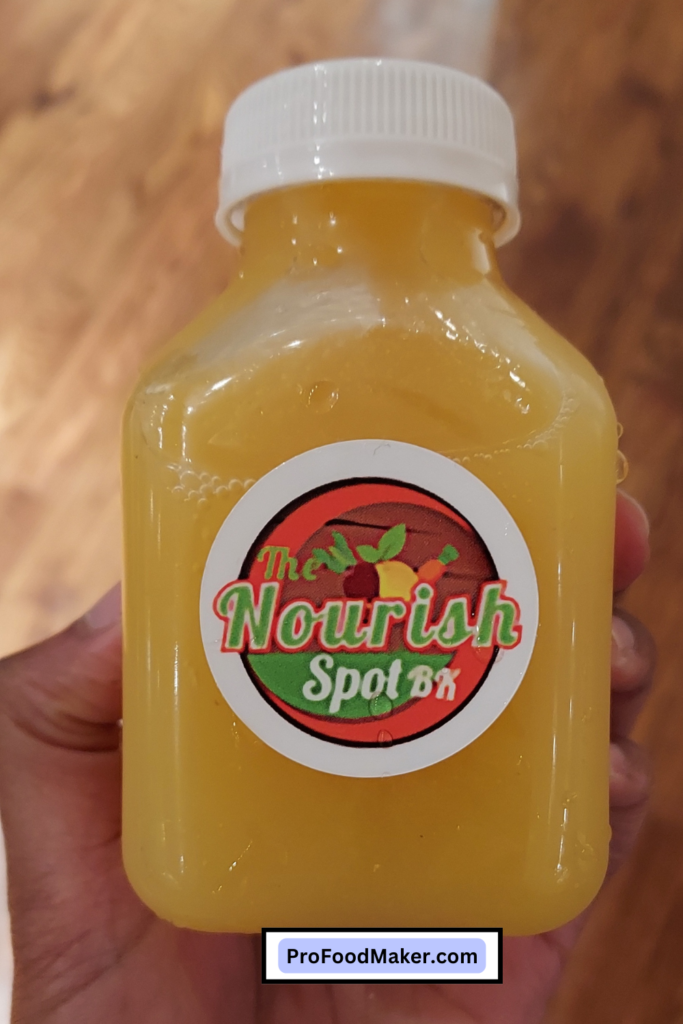
Salted chocolate chip cookie with pork fat from The Salty Heifer
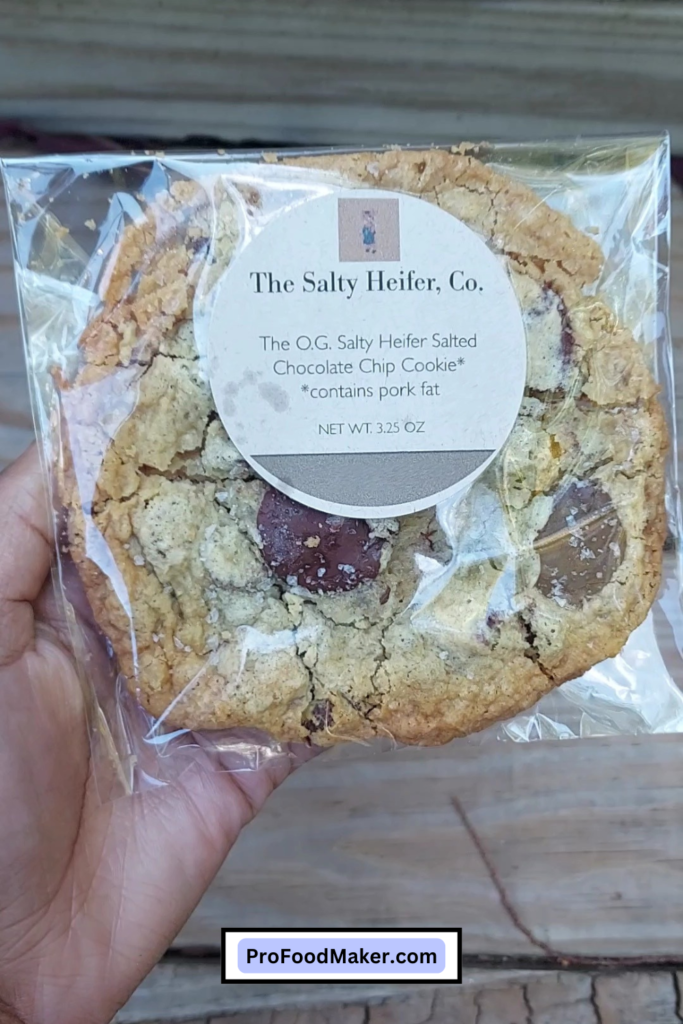
Vegan rosemary chocolate ice cream with Oreo from Solo Scoop Creamery
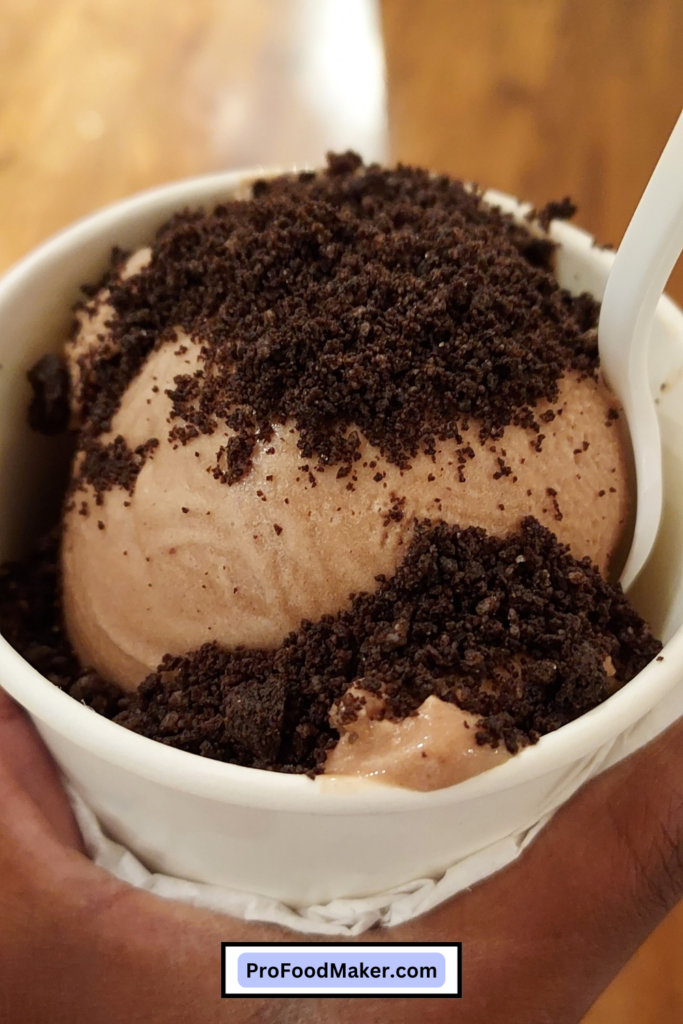
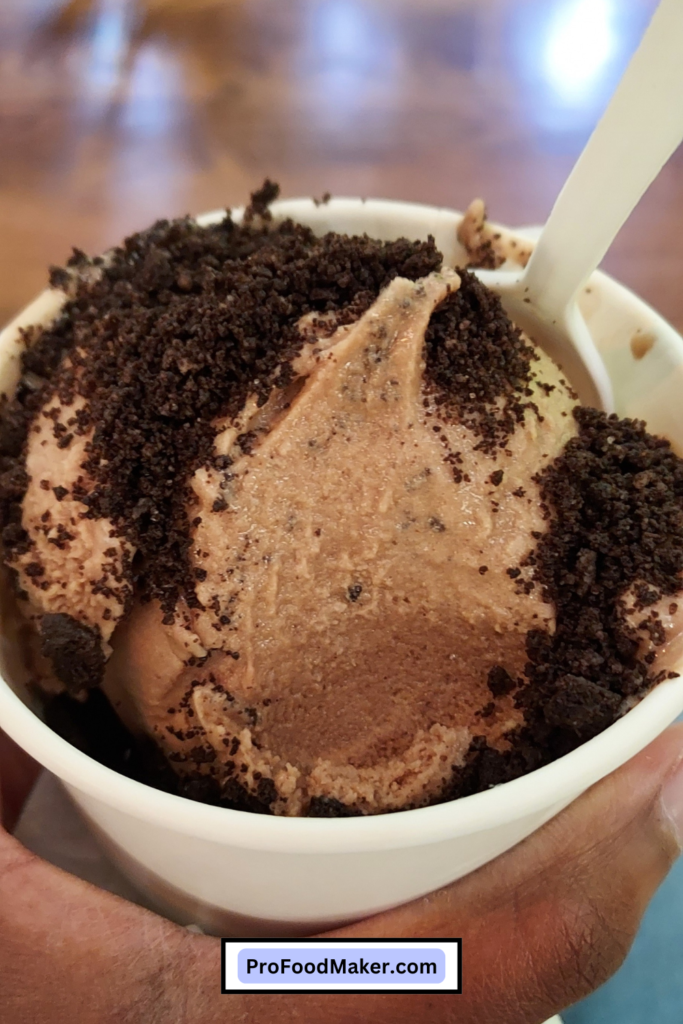
Thank you for having vegan options! And for taking flavor risks.
The rosemary chocolate is excellent, but I know that people tend to shy away from rosemary because of its strong flavor.
Non food items I bought at Culinary Creatives Conference
I ordered a copy of While Entertaining Vol. 5 from BEM | books & more.
Earlier this year, Cofounders Gabrielle and Danielle Davenport, raised more than $75K on Kickstarter to open a physical location in Bed-Stuy.
BEM | books & more is a pop up bookstore focused on Black food. Their future location will host cooking classes in their test kitchen, a cafe and wine bar, and more.
Below is a picture of the Limited Edition Embroidered Crewneck. It’s one of the backer rewards for their Kickstarter.
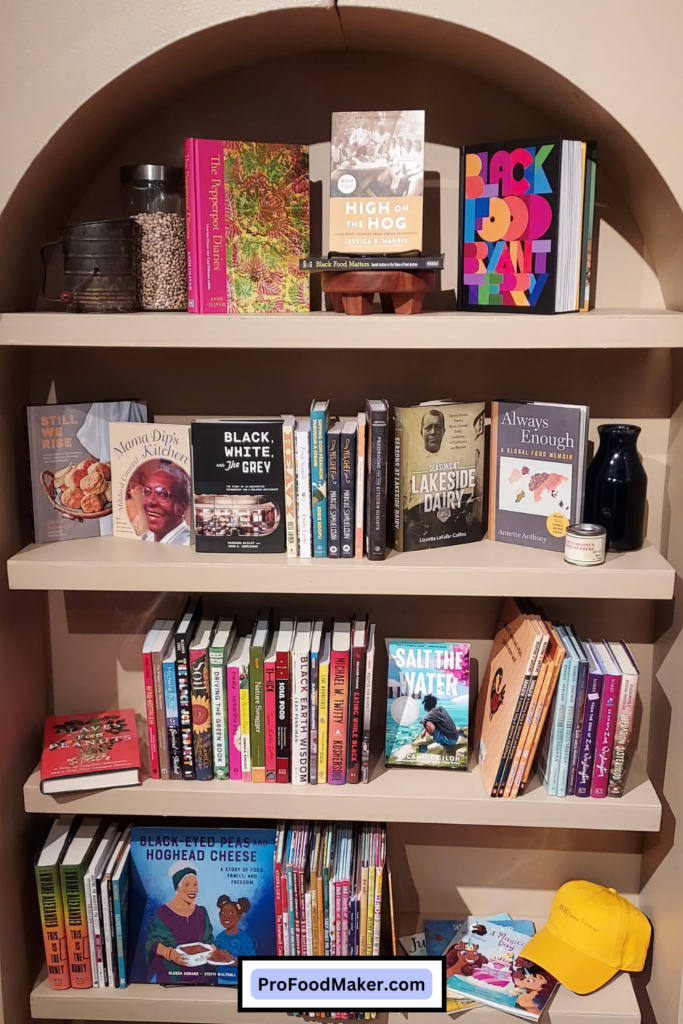
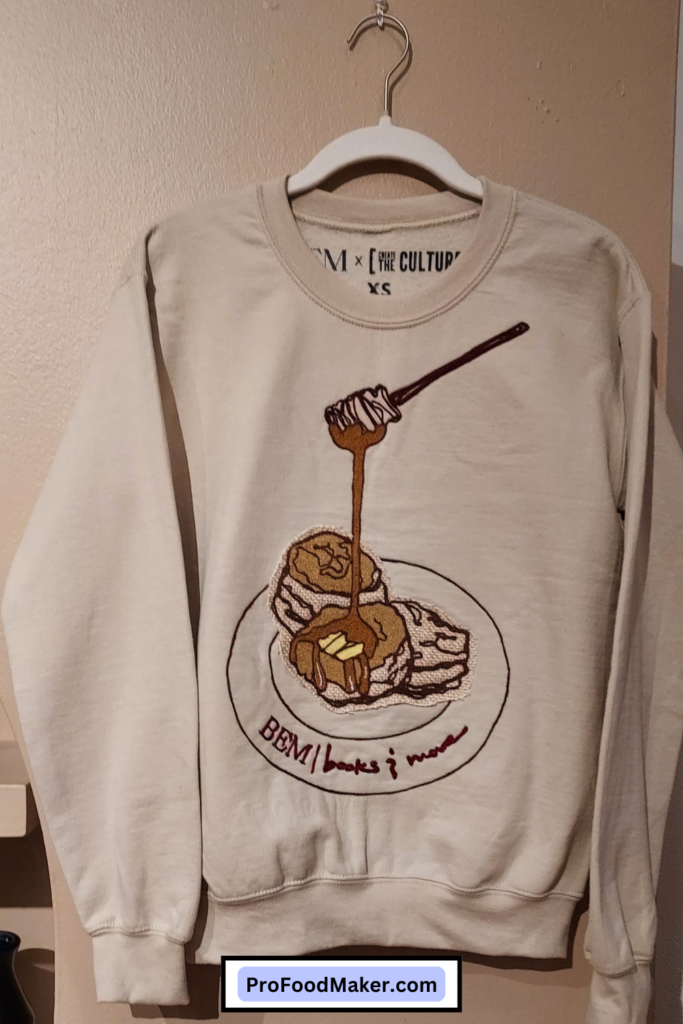
Staying hydrated is crucial to our health, and I never seem to have enough water bottles.
It came down to the lavender or mint insulated water bottle from SUPLMNT.
After a few hours of overthinking, I finally decided on the mint.
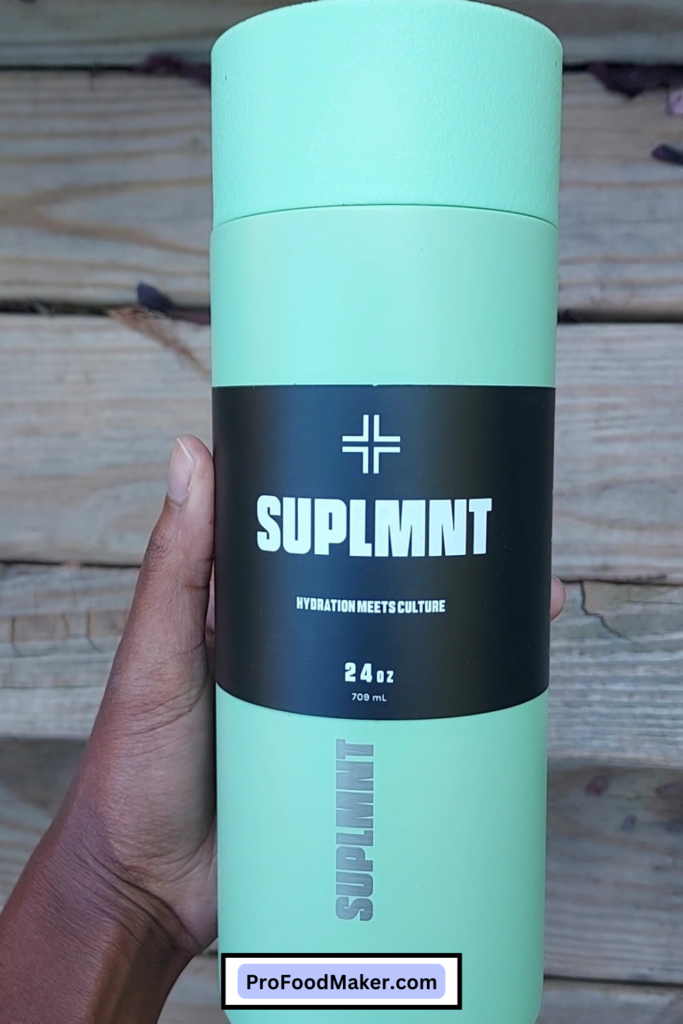
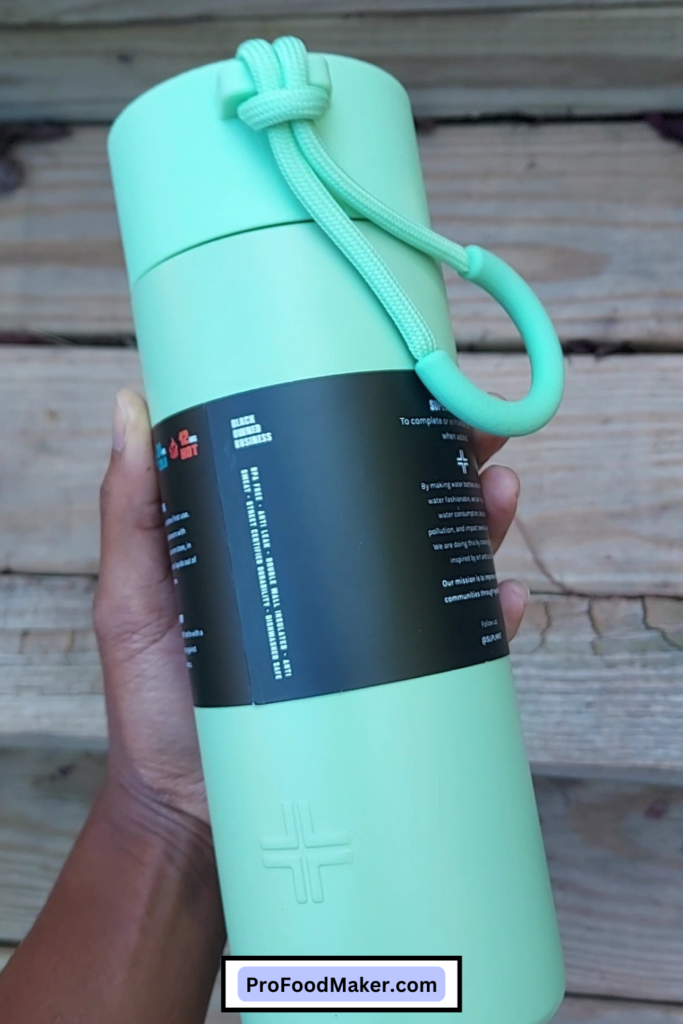
More NYC Black owned restaurants & food businesses
One of my top priorities when traveling is to ‘Buy Black’ as much as possible.
My first stop was Harlem Chocolate Factory.
I bought two bars. Not pictured is the Golden Brownstone Bar which has fig and ginger.
I also bought truffles, which I accidentally squished on the flight home.
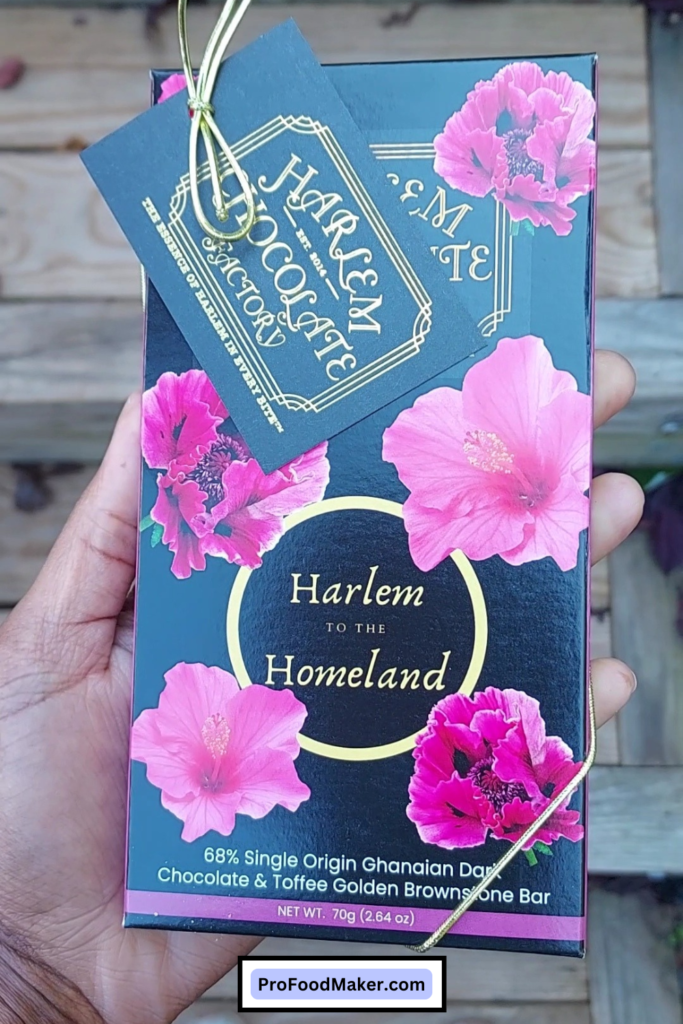
Then I went on a mission to find Edenesque, whose Founder & CEO, Leslie Woodward, made the Whole Foods LEAP 2024 cohort.
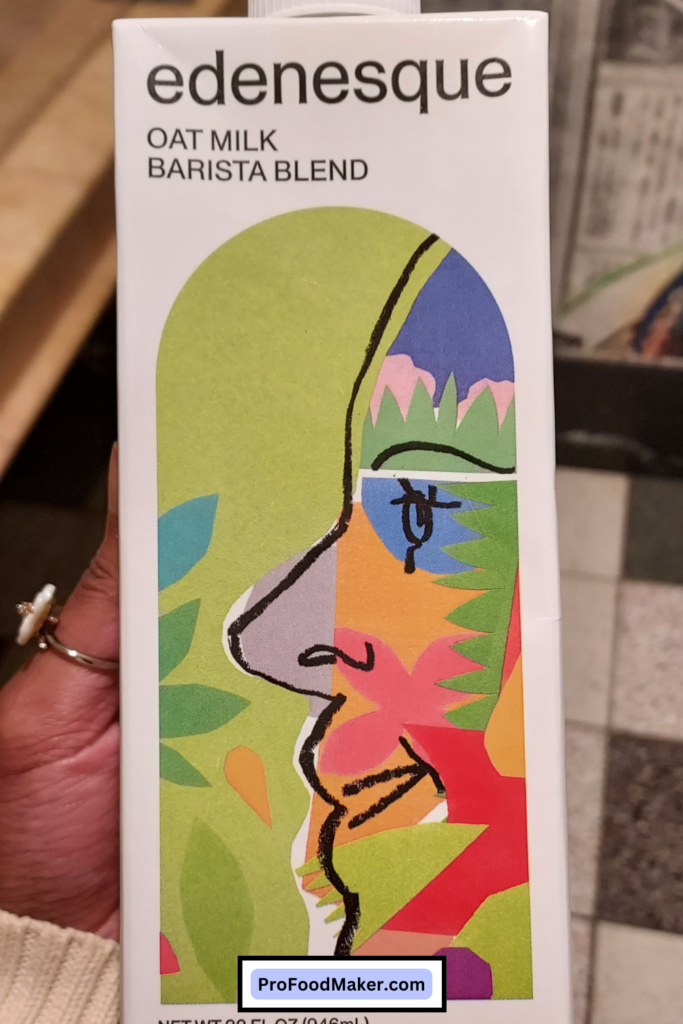
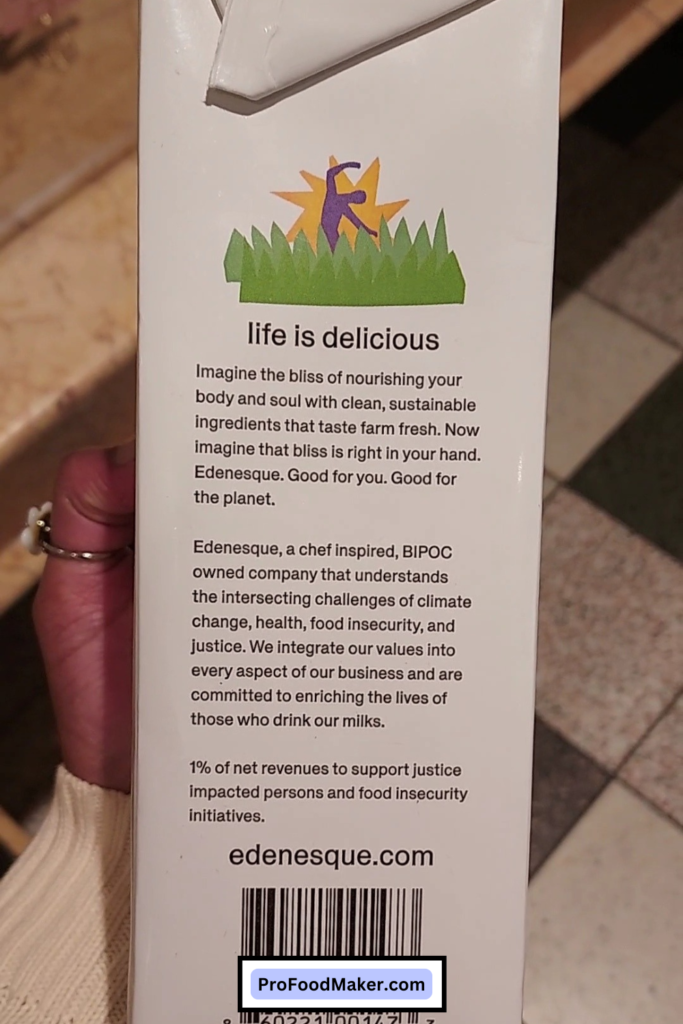
Maybe we’ll see Edenesque plant based milk in Whole Foods soon.
Some of the best food I’ve had in a while was at Aunts et Uncles, a beautifully decorated vegan cafe in Brooklyn.
For lunch, I had the Tivoli Taco and corn & split pea soup (not pictured).
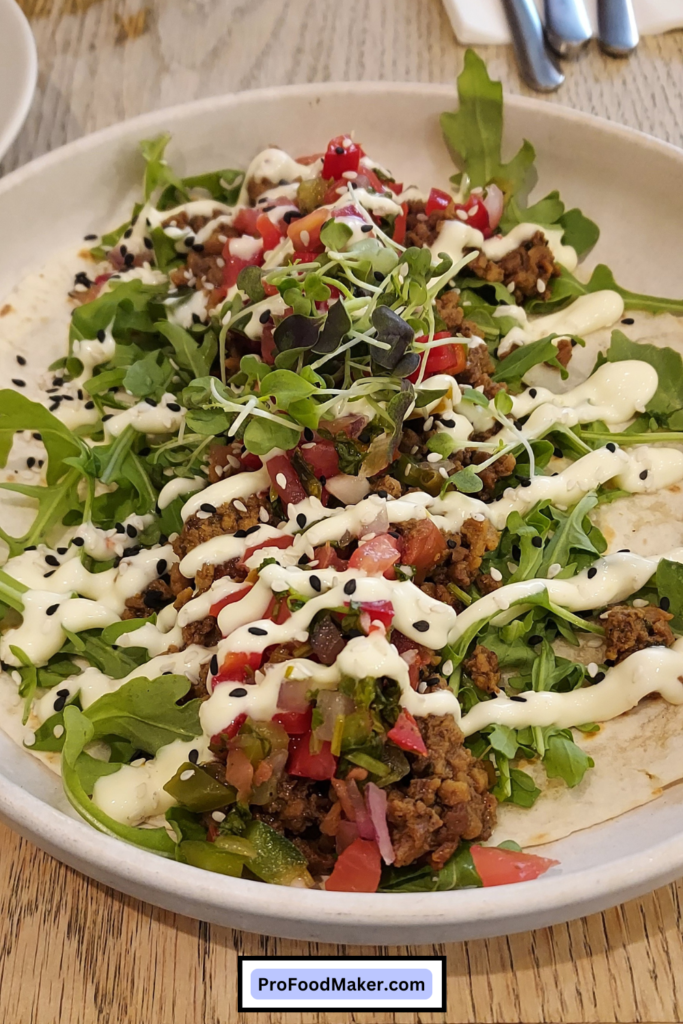
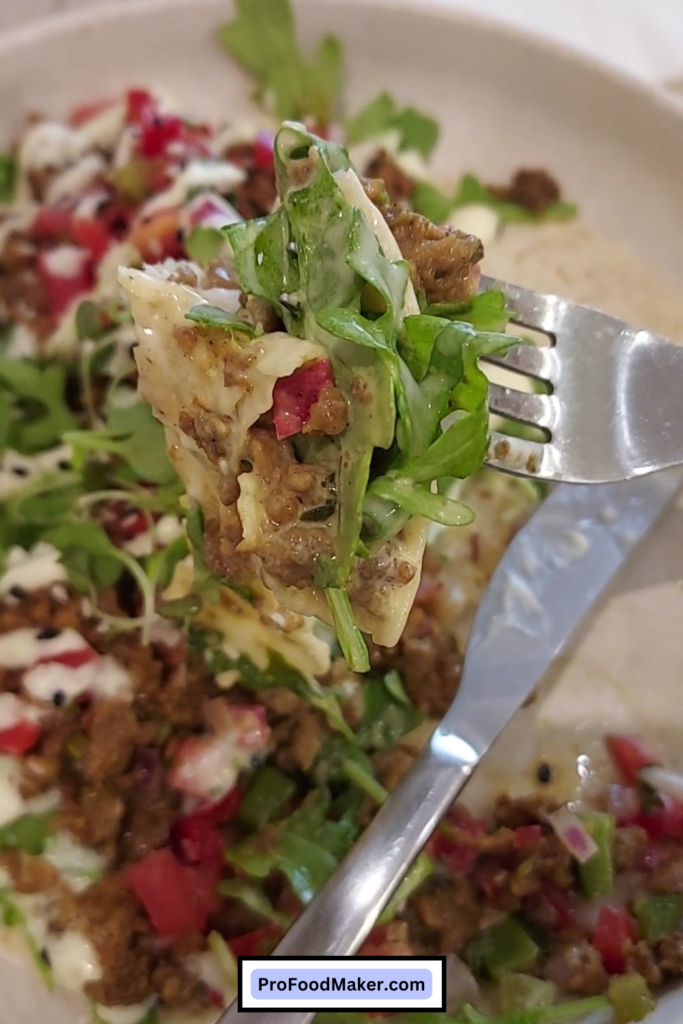
There’s so much more of the Black food community in NYC that I want to explore and I hope to be back soon.
More Black food conferences & events
Chopd & Stewd Festival: Houston’s West African Diaspora Celebration
Restaurant tech in Japan
Tokyo Robot Restaurants: How to Leverage Robotics in Hospitality
